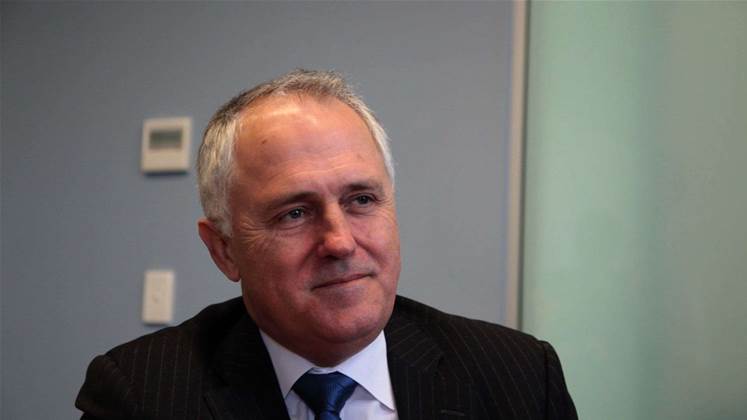The Federal Opposition has attempted to shut down debate on amended NBN bills passed by the Senate late Friday, saying there was "no urgency" to see them moved into law.

As the House of Representatives returned for an extra sitting day today, opposition leader Tony Abbott immediately brought a motion to suspend standing and sessional orders – only to be defeated by a single vote.
Coalition ministers then continued to frustrate attempts to debate the amended bills in the lower house by instead debating a Government motion seeking to hear the amended bills.
The manager of opposition business in the house, Christopher Pyne, said the Coalition would not "rubber stamp" the amended bills.
Pyne called on the Government to create more regular sitting days in the parliamentary schedule to debate key legislation, rather than bring the house back on days it was not scheduled to sit.
The house was supposed to have broken until the Federal budget in mid-May but was brought back by the Government in an attempt to get the NBN bills passed.
The Government managed to get the NBN Companies and Access bills through the upper house in marathon debates on Thursday and Friday, after backing amendments created by the Greens and independents.
Upper house passage of the bills occurred despite a motion filed by Liberal Senator Simon Birmingham to suspend the Senate sittings, which Communications Minister Stephen Conroy controversially labeled a "gag" order.
Opposition communications spokesman Malcolm Turnbull said that Senate amendments to the bills were "substantial, not minor".
"These are sweeping amendments introduced into the Senate by a fundamentally and thoroughly dysfunctional and incompetent government," Turnbull said.
"After months of discussing this legislation, they chose to bring in dramatic changes to legislation that were so substantial it sent an entire industry into a furore."
Turnbull branded the amended bills "nothing more than a grab for power by the NBN and its owner [the Government]".
He said the NBN Co was looking for ways to generate revenue, and the ways it found came at the expense of the corporate and government businesses of private sector telcos.
Critics claim exemptions in the NBN bills will allow corporate and government organisations to take a direct "wholesale" feed from the NBN, bypassing Layer 3 retail service providers.
Turnbull accused the Government of being "in confusion and disarray" as it attempted to rush through amendments to the NBN bills last week.
"If the Government, with all its resources and expertise, is in confusion and disarray, how absurd is it for this House to deliberate this legislation when we only had these amendments [sent to us] over the weekend?" he said.
"There is a whole industry that is confused, appalled and troubled by these amendments. There is no urgency to bring these bills [for debate] today."
More changes flagged
Nationals MP Luke Hartsuyker also foreshadowed that the Coalition would move amendments today to "ensure equity across [access] technologies".
That followed extensive Senate debate over the wording of a clause in the NBN Access Bill concerning the issue of uniform pricing of wholesale internet services.
"The price for NBN Co's entry level service must be the same across Australia and across NBN Co's fibre, wireless and satellite networks," a revised explanatory memorandum stated.
"However, the prices for higher-speed services only need to be uniform within a specified technology, and not across all technologies."
That led to accusations the Government had backtracked on its promise of uniform prices across the country, no matter the access technology.
It was feared that the effect of this clause was that if wireless and satellite technologies ever allowed for speeds greater than 12 Mbps, customers would not pay the same wholesale fees as those with equivalent fibre connections.
In other words, if a 50 Mbps wireless service was ever launched, customers could pay a different wholesale rate to customers who took a 50 Mbps fibre service, destroying the notion of "uniform pricing".
However, because the NBN did not offer speeds above 12 Mbps for wireless or satellite, the Government has maintained the fears were unfounded.




_(20).jpg&h=140&w=231&c=1&s=0)
_(28).jpg&h=140&w=231&c=1&s=0)





 iTnews Executive Retreat - Security Leaders Edition
iTnews Executive Retreat - Security Leaders Edition
 iTnews Benchmark Awards 2026
iTnews Benchmark Awards 2026
 iTnews Cloud Covered Breakfast Summit
iTnews Cloud Covered Breakfast Summit
 The 2026 iAwards
The 2026 iAwards











_(1).jpg&h=140&w=231&c=1&s=0)



